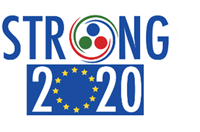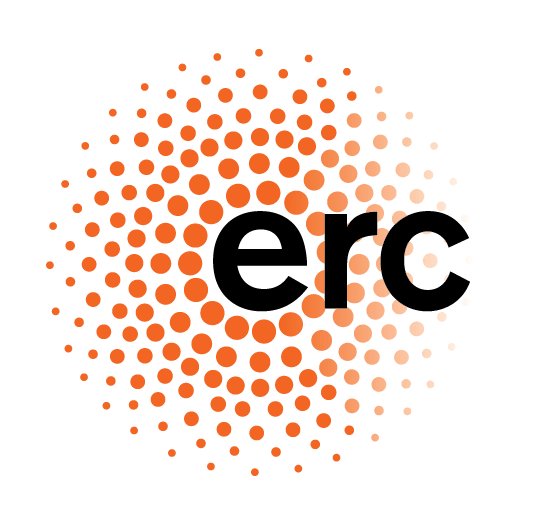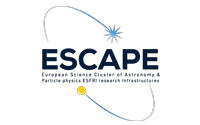Access to European funding
European projects are an important source of funding to structure research within the Union. IN2P3 encourages its researchers to respond to the calls for proposals of the current European Commission's Framework Programme for Research and Development, Horizon 2020 (2014-2020).
IN2P3 supports the Institute's teams in the definition, set-up, management and implementation of European research programmes, in collaboration with CNRS Regional Delegations present at the local level.
It maintains a network of European correspondents present in each of its laboratories.
By interacting with MESRI (Ministry of Higher Education, Research and Innovation) and CNRS office in Brussels, IN2P3 monitors and participates in the implementation and definition of Horizon 2020 and the next Horizon Europe programme (2021-2027).
Contact
IN2P3's participation in Horizon 2020
H2020 programme is organised as three main pillars which fund projects in all existing research fields: scientific excellence, industrial leadership, societal challenges. These main pillars are complemented by several transversal programmes and EURATOM. IN2P3 is mainly involved in the scientific excellence pillar, which includes the INFRA and ERC calls and the EURATOM programme. The projects funded may be collaborative or individual.
Collaborative projects
Since 2014, the European Commission has selected and funded collaborative projects, enabling European Union member countries to carry out large-scale research programmes. In the framework of several calls, IN2P3 has steered 25 such projects, including 3 that are jointly coordinated with CNRS. They involve: the INFRA (European Research Infrastructures of Excellence) and EURATOM (research for the peaceful civil use of nuclear fission and fusion energy) calls, and also Marie-Curie RISE (research and staff exchanges), ICT (information and communication technologies) and Science with and for Society.
The STRONG-2020 project

The STRONG-2020 project is a structured initiative to address open questions in interaction studies that are strong in theory and experience. It builds on and goes beyond the previous Hadron Physics HP, HP2 and HP3 projects.
The results of STRONG-2020 will have a significant impact on the study of strong interactions and the Standard Model. The project will also contribute to fundamental physics research beyond the Standard Model and will have an impact on other scientific fields such as astrophysics and the theories of complex systems that are strongly coupled in matter.
STRONG-2020 is financed to the tune of 10 million euros, piloted by IN2P3 and started in mid-2019. Barbara Erazmus, a physicist at IN2P3, is coordinating the project, which brings together 44 European institutions and includes 36 countries involved in research in this field.
The ESCAPE project
The ESCAPE project brings together partners from astronomy and particle physics who are collaborating to build the European Open Science Cloud. - EOSC.
EOSC is an initiative of the Member States of the European Union. This European Cloud will provide universal access to research data via a single online platform. The EOSC will federate existing resources in national data centres, digital and research infrastructures, enabling researchers and the general public to access and reuse data produced by other scientists.
ESCAPE actions aim to provide solutions to integrate scientific data, tools, services and software; to foster common approaches to implement open data management; to establish interoperability within the EOSC as an integrated multi-probe facility for basic science.
The ESCAPE is financed to the tune of 16 million euros, piloted by IN2P3 and started early in 2019. Giovanni Lamanna, a physicist of IN2P3, is the scientific coordinator of this project.
https://in2p3.cnrs.fr/fr/cnrsinfo/lancement-du-projet-escape
Individual projects of the European Research Council (ERC)
IN2P3 researchers are strongly involved in the European Research Council (or ERC) programme. This was created in 2007 and it awards individual research grants based on criteria of scientific excellence for a maximum duration of five years. A total of thirteen IN2P3 researchers have been awarded ERC grants, allowing them to conduct exploratory research in very good conditions:
- Starting Grant for young researchers - two to seven years after their thesis (up to 2.5 million euros): awarded to Raphaël Granier de Cassagnac, Marianne Lemoine-Goumard, Cédric Deffayet, Guillaume Pignol, Julien Billard, Raphaël Dupré;
- Consolidator Grant for researchers - seven to twelve years after their thesis (up to 3 million euros): awarded to Giulia Manca, Vladimir Gligorov, Yolanda Prezado, Justine Serrano;
- Advanced Grant for senior researchers (up to 3.5 million euros): Grant winners Elias Kiritsis, Andrea Giukiani, Paulo Privitera;
- Synergy Grant for a group of 2 to 4 researchers, without conditions of experience (up to 14 million euros);
- Proof of Concept for laureates, to support the development of results obtained in the framework of an ERC grant.
ERC-CNRS website
 The ERC-CNRS website lists CNRS European Research Council laureates since 2007. This site is intended for scientific and institutional researchers in France and around the world and aims to promote the winners and encourage scientists to participate in the ERC.
The ERC-CNRS website lists CNRS European Research Council laureates since 2007. This site is intended for scientific and institutional researchers in France and around the world and aims to promote the winners and encourage scientists to participate in the ERC.
